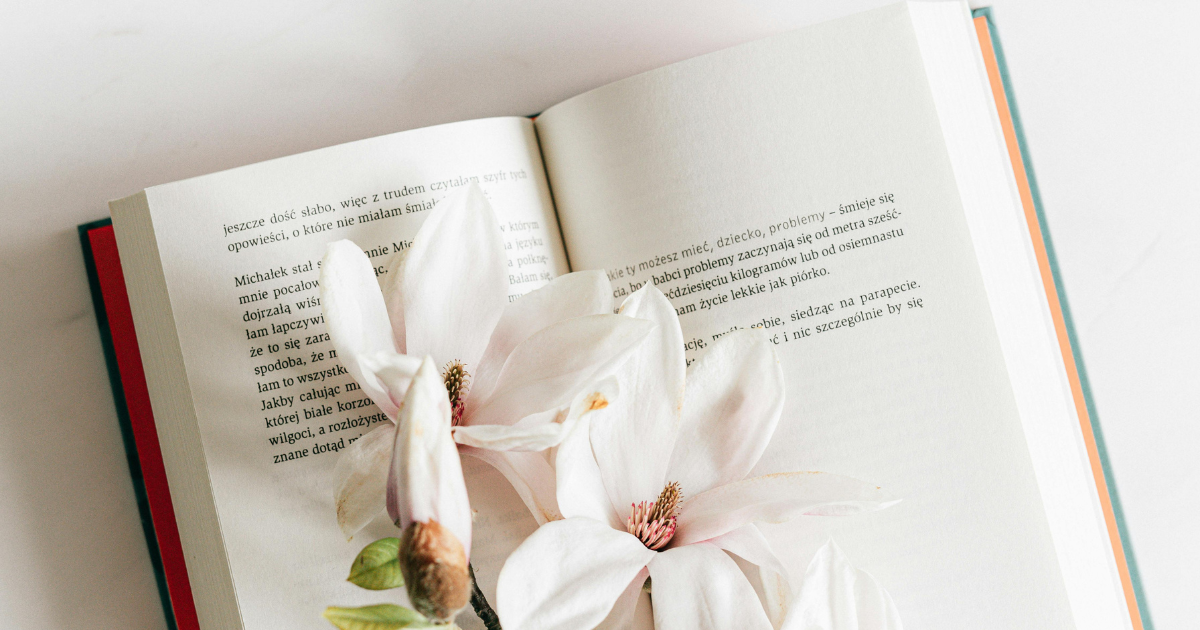A Silk Road Reimagined:
Teplo Store Brings Central Asian Design to London Design Biennial
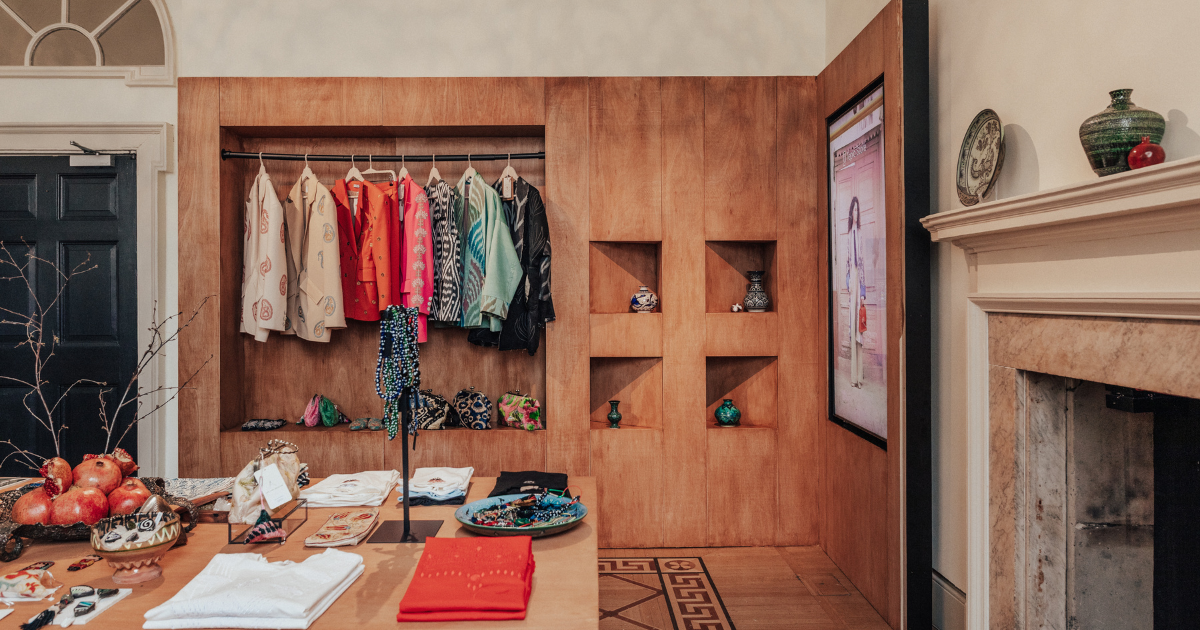
At the 2025 London Design Biennial, nestled in the grandeur of Somerset House, Teplo Store presents The Silk Road Pop-Up — a curated retail and cultural experience that bridges centuries of Silk Road heritage with contemporary creativity. Curated by art producer Alisa Lisovskaia, the booth installation is a vivid celebration of independent design, cultural memory, and storytelling through craftsmanship.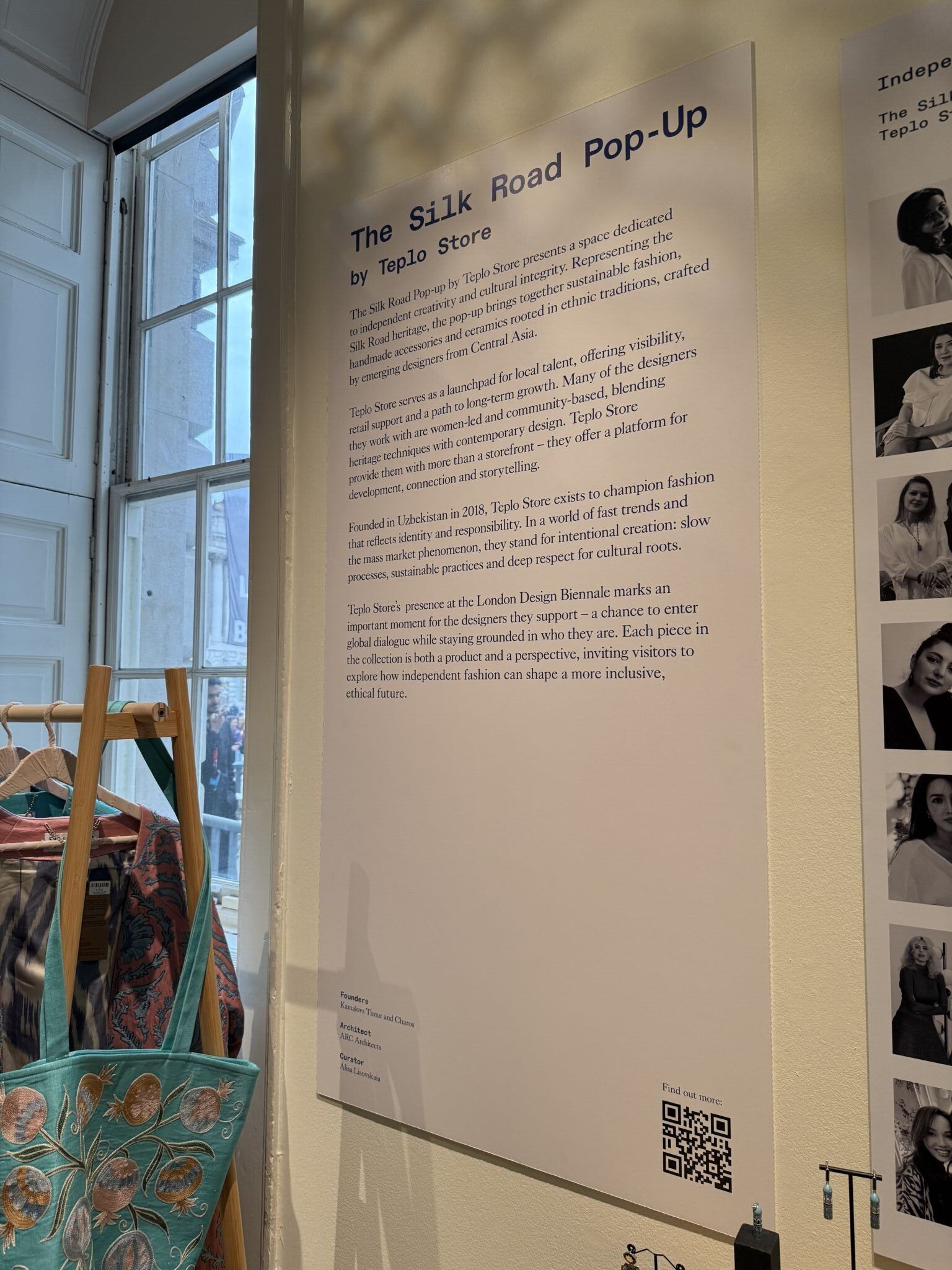
Founded in 2018 by Charos and Timur Kamalov in Tashkent, Teplo Store has grown into a concept store representing over 300 independent brands, 95% of which are women-led. With a mission to spotlight community-based artisans and designers across Central Asia, Teplo Store champions slow fashion, sustainability, and the revitalization of traditional techniques. At this year’s Biennial, Teplo Store becomes the first and only retail presence — a significant milestone for both the brand and the region it represents.
Designed by ARC Architects, the pavilion itself embodies the flow and fluidity of the ancient trade routes. With soft contours and warm textures, it becomes a space shaped by memory and movement — a modern Silk Road in form and feeling.
At the heart of the installation lies a powerful artwork by Uzbekistan-born, London-based artist Zulfiya Spowart, whose abstract sculptural form conjures a dynamic battle between a dragon and a horse-riding hero. 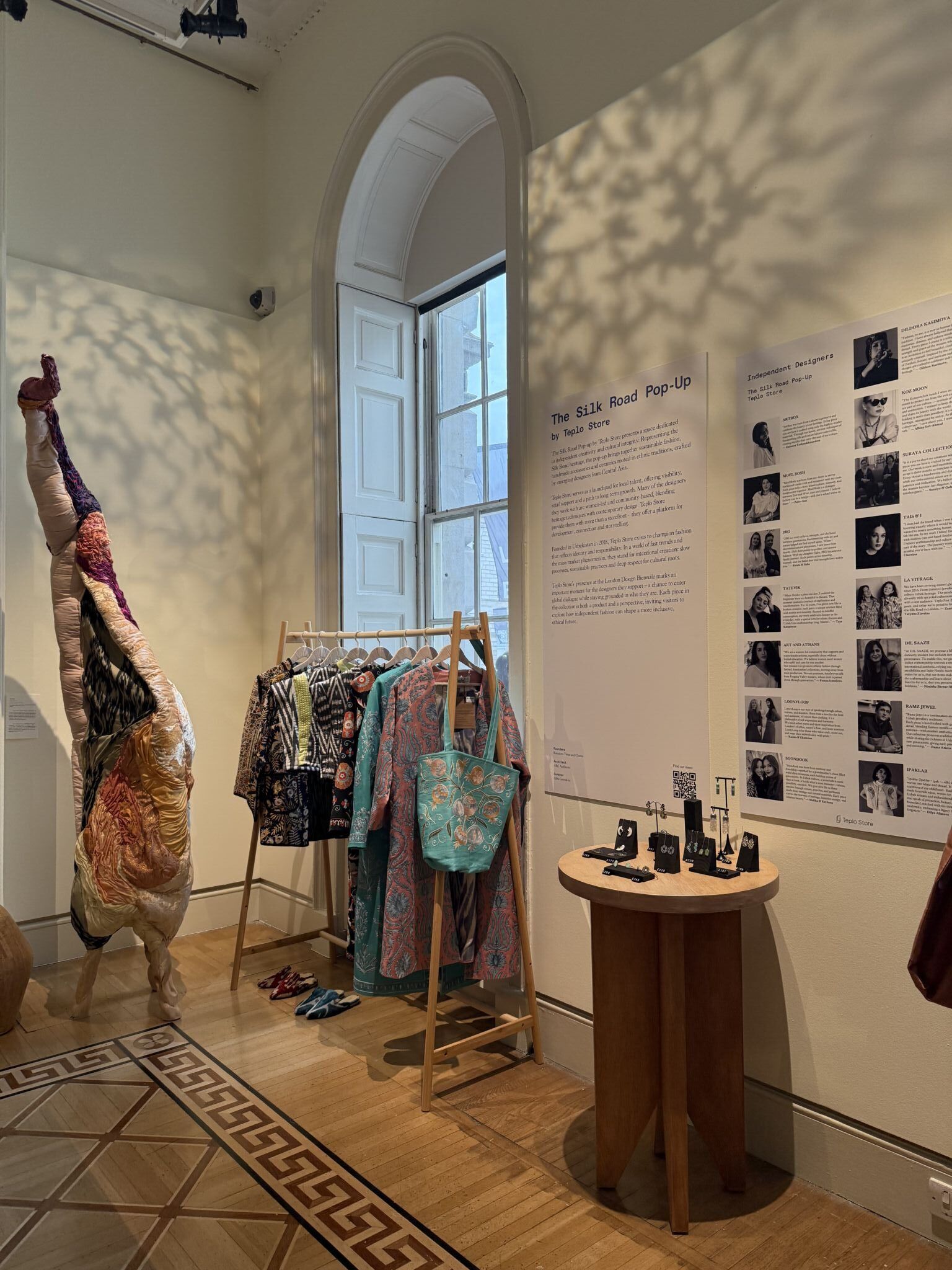
Inspired by Persian miniatures, Spowart reinterprets these motifs through the lens of corporeality and inner conflict. Her work merges wood carvings and vintage textiles from the historic Tashkent Silk Mill, dyed naturally with red and white onion skins and avocado peels. The soft sculptures, filled with repurposed garments, confront the viewer with a meditation on identity, femininity, and cultural displacement. “I explore corporeality as a site of inner conflict,” says Spowart. “Clothing becomes a metaphor — both a shield and a boundary between the self and society.”
The Silk Road Pop-Up is more than a showcase; it is a living, breathing platform for designers whose work is deeply rooted in cultural legacy yet fully present in the now. The curated brands span disciplines from ceramics to fashion and accessories, each carrying a unique narrative:
- Moel Bosh, by Zuhra Inat, blends memory and modernity in textiles;
- TATEVIK, by Tata Karapeyan, upcycles broken ceramics into evocative, story-laden pieces;
- 2BG, founded by Krista and Saba, turns gemstone jewelry into a generational love letter;
- Art and Artisans, a collective led by Feruza Ismoilova, empowers women without formal education through ethical fashion;
- LoonyLoop, by Karina and Ekaterina, redefines freedom through expressive knitwear;
- Dildora Kasimova, who reinterprets embroidery traditions into contemporary fashion statements;
- Koz Moon, founded by Albina Sali-Ahmad, revives the protective talismans of her youth in wearable form;
- Suraya Collection, where Suraiyo and Gulnoza craft meticulous embroidered pieces that celebrate womanhood;
- Tais & I, by Taisiya Chursina, blends Eastern silhouettes with hand-finished modern cuts;
- La Vitrage, founded by Zamira Ashurova and Tatyana Ziavrina, reintroduces stained glass to modern design;
- Dil Saazii, by Nimisha Berner-Mund, fuses Indo-Nordic sensibilities with heritage Indian craftsmanship;
- Ramz Jewel, by Ramz Azizov, continues and contemporizes Uzbek jewelry motifs;
- Ipaklar, by Dilya Alimova, tells the story of her homeland through silk and suzani;
- Soondook, by Malika and Rayhona, weaves intimate family stories through corsets and pouches made from vintage fabric;
- ARTBOX, founded by Gulnoza Tashmukhamedova, revives ancient silk weaving practices for today.

Each designer offers a point of view that is as tactile as it is emotional. The result is a cohesive and multilayered tapestry of Central Asian identity, told not just through objects but through the hands, stories, and memories behind them.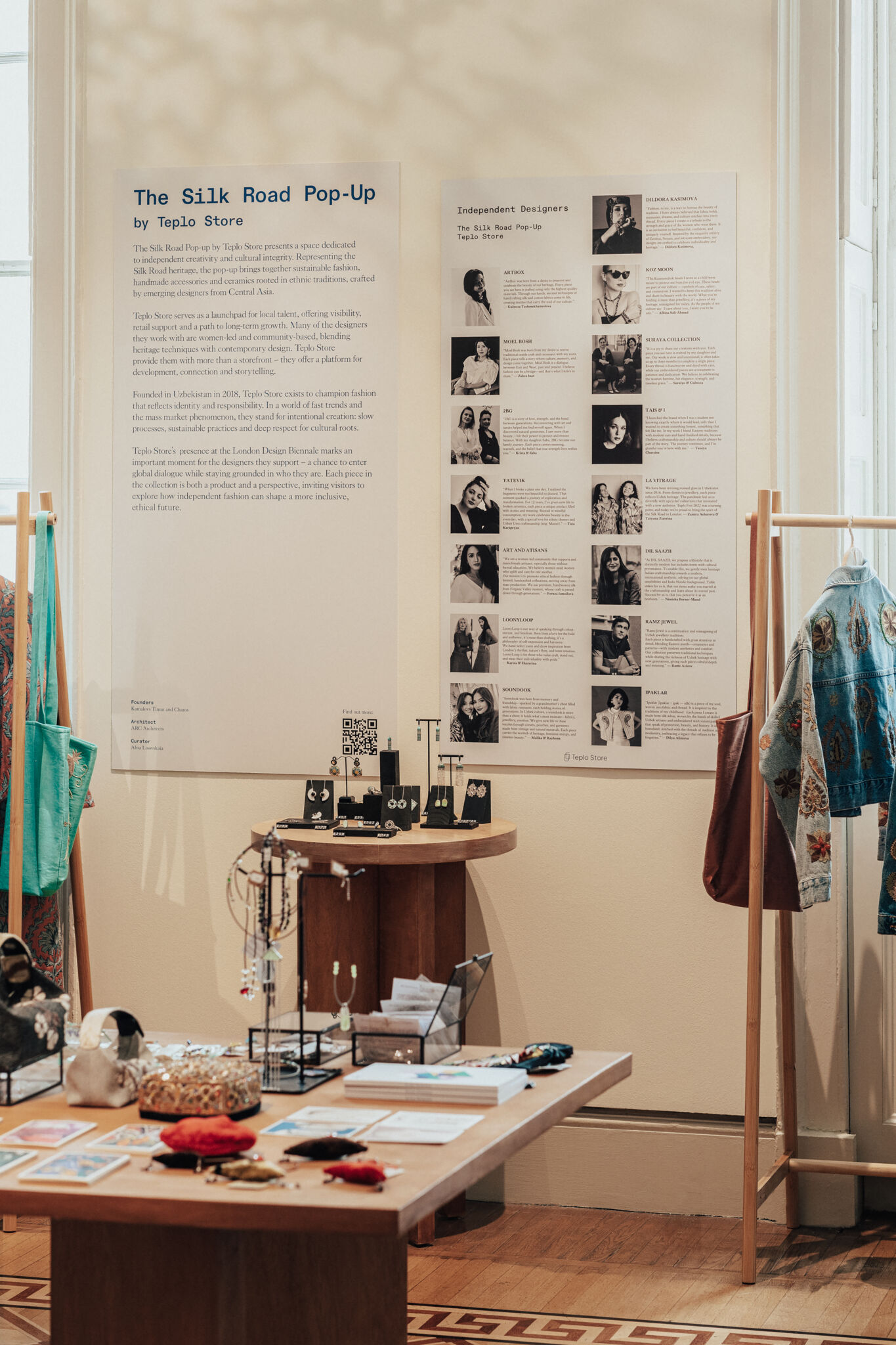
Supported by London-based art curator Alisa Lisovskaia, the project also includes a panel talk that brings together designers and cultural producers to discuss themes of heritage, sustainability, and artistic autonomy. The event creates space for critical dialogue and deeper connections, both within the diaspora and with the wider design community. As part of the accompanying program, the artist Zulfiya Spowart also leads a hands-on workshop inviting participants to create floral textile collages using embroidery and fabric layering techniques. The workshop echoes her practice of reviving inherited materials and traditions while making them accessible and personal.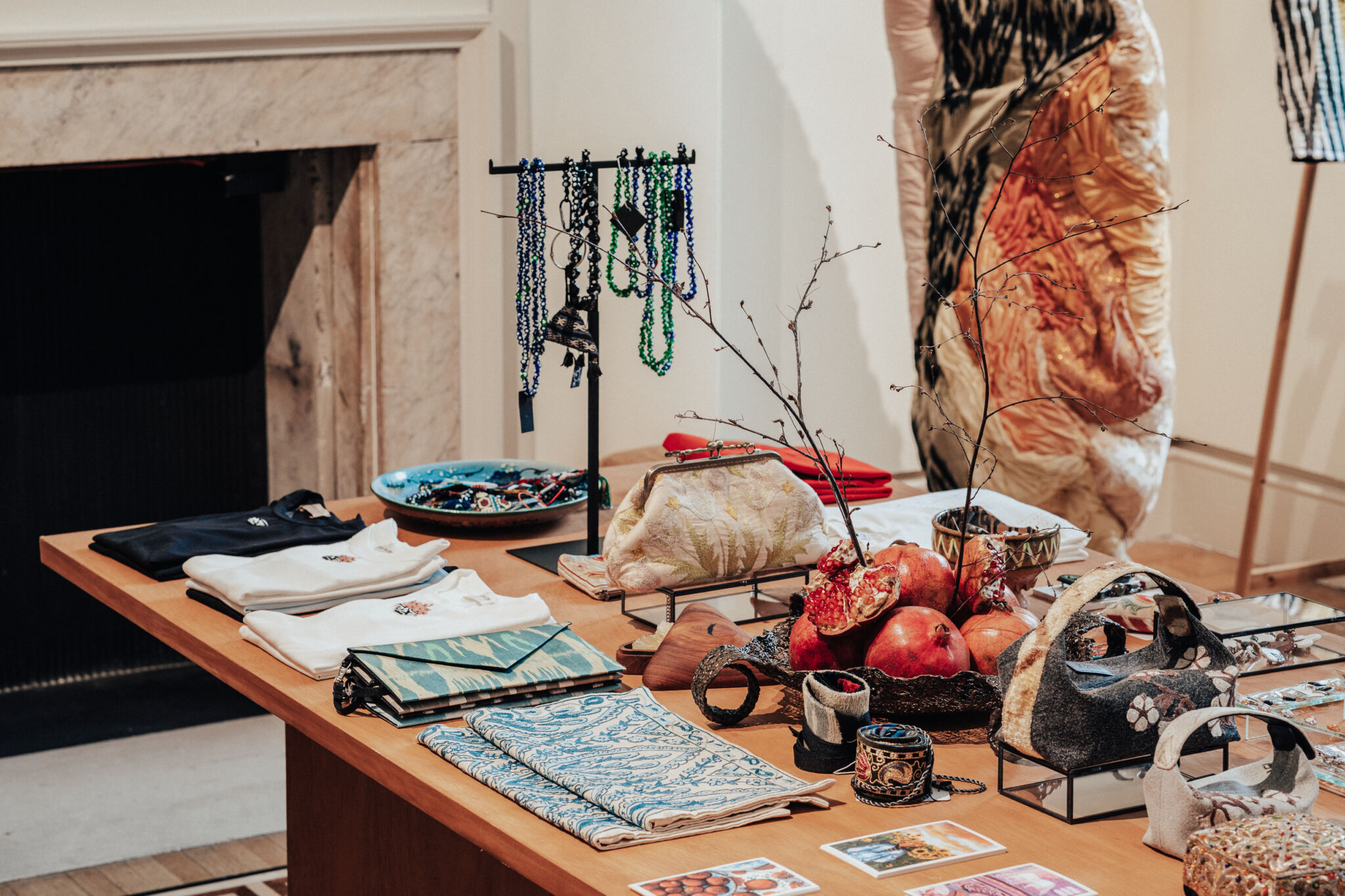
In a world where fast fashion and fleeting trends dominate, The Silk Road Pop-Up by Teplo Store offers a bold alternative — one that is rooted in resilience, creativity, and a profound sense of place. Through this installation, Uzbekistan finds a new voice on the global stage, one that is both ancient and urgently contemporary.
Visitors can experience the space, the works, and the stories from June 6 to June 29 at Somerset House as part of the London Design Biennial.
Photo: Iroda Inogamova
